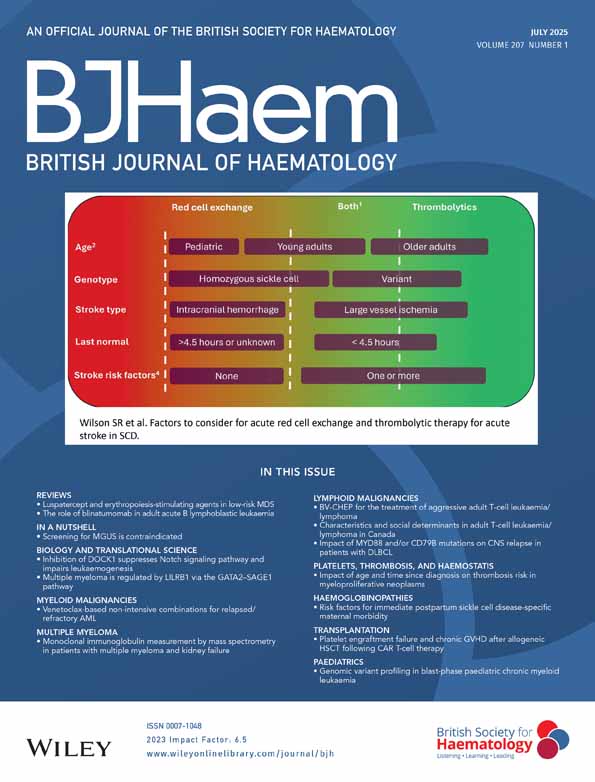Treatment of anti-recombinant interferon-alpha 2 antibody positive CML patients with natural interferon-alpha
Abstract
Summary Of 38 patients with a Philadelphia-chromosome positive chronic myeloid leukaemia treated with recombinant interferon alpha (rIFN-α) 2a or 2b and monitored for emergence of IFN-antibodies in their sera 11 patients developed rIFN-α2 binding and 10 rIFN-α2 neutralizing antibodies. rIFN-α neutralizing antibody positive patients experienced significantly (P<0·025) more clinical relapses (6/10) than IFN-antibody negative patients (6/28) during continuous IFN-therapy. Furthermore, IFN-antibody-positive patients with titre above 400 INU/ml were more likely to relapse under rIFN-α-therapy than IFN-antibody-negative patients with titre below 400 INU/ml (P<0·05).
Seven rIFN-antibody-positive patients experiencing a clinical relapse or a primary non-responsiveness were treated with two- to three-fold increased doses of rIFN-α2. Only one of these seven patients developed a partial haematological remission upon intensification of the rIFN-α2 therapy. Consecutively, the six patients failing high dose rIFN-α treatment were switched to a natural IFN-α preparation (3 × 9 × 106 I.U. weekly s.c.). Under such treatment two of the six patients achieved a long-lasting complete, one a partial haematological remission.
In high-titred IFN-antibody positive patients significantly altered serum-IFN-titre and minimal IFN-inducible Mxhomologue concentrations were measured; in contrast, nIFN-α induced normal IFN-titre and dose-equivalent Mxhomologue amounts in these patients. The data prove that high-titred rIFN-α neutralizing antibodies abrogate the biological action of rIFN-α, but not of nIFN-αin vivo and explains why nIFN-α can be effective in the anti rIFN-α2 positive patients.




